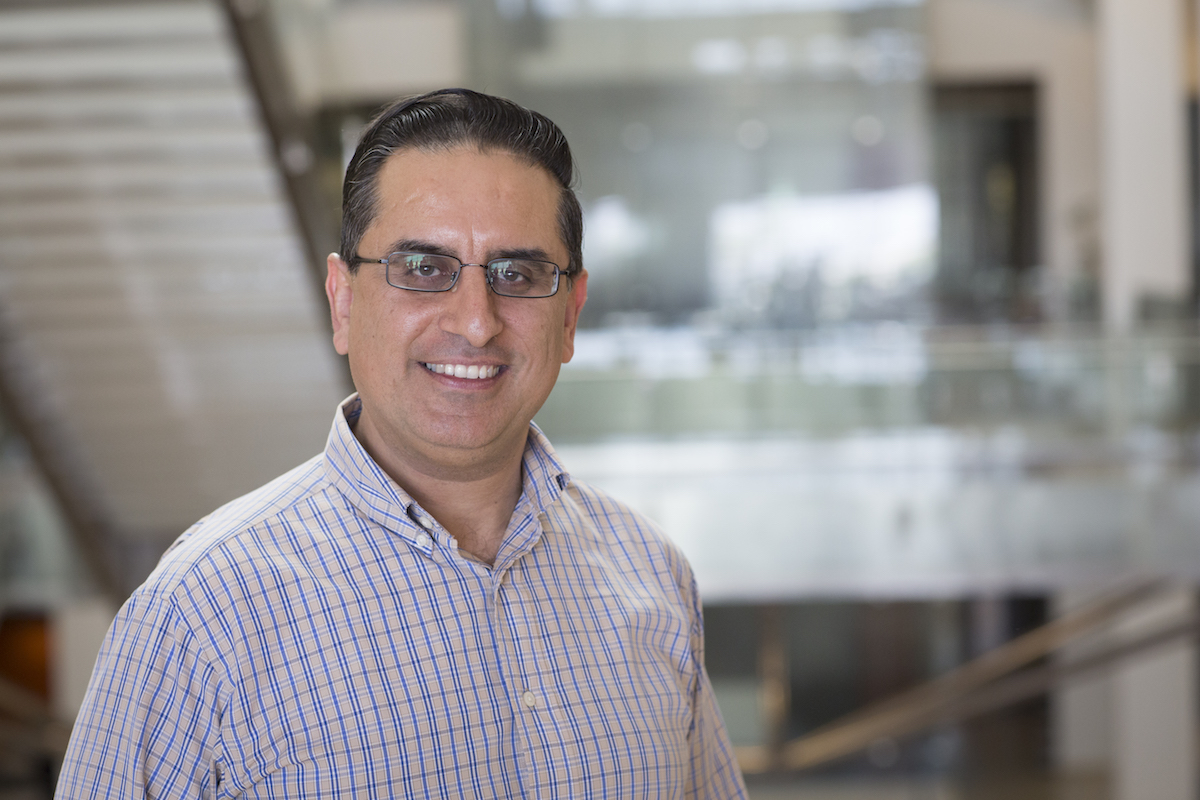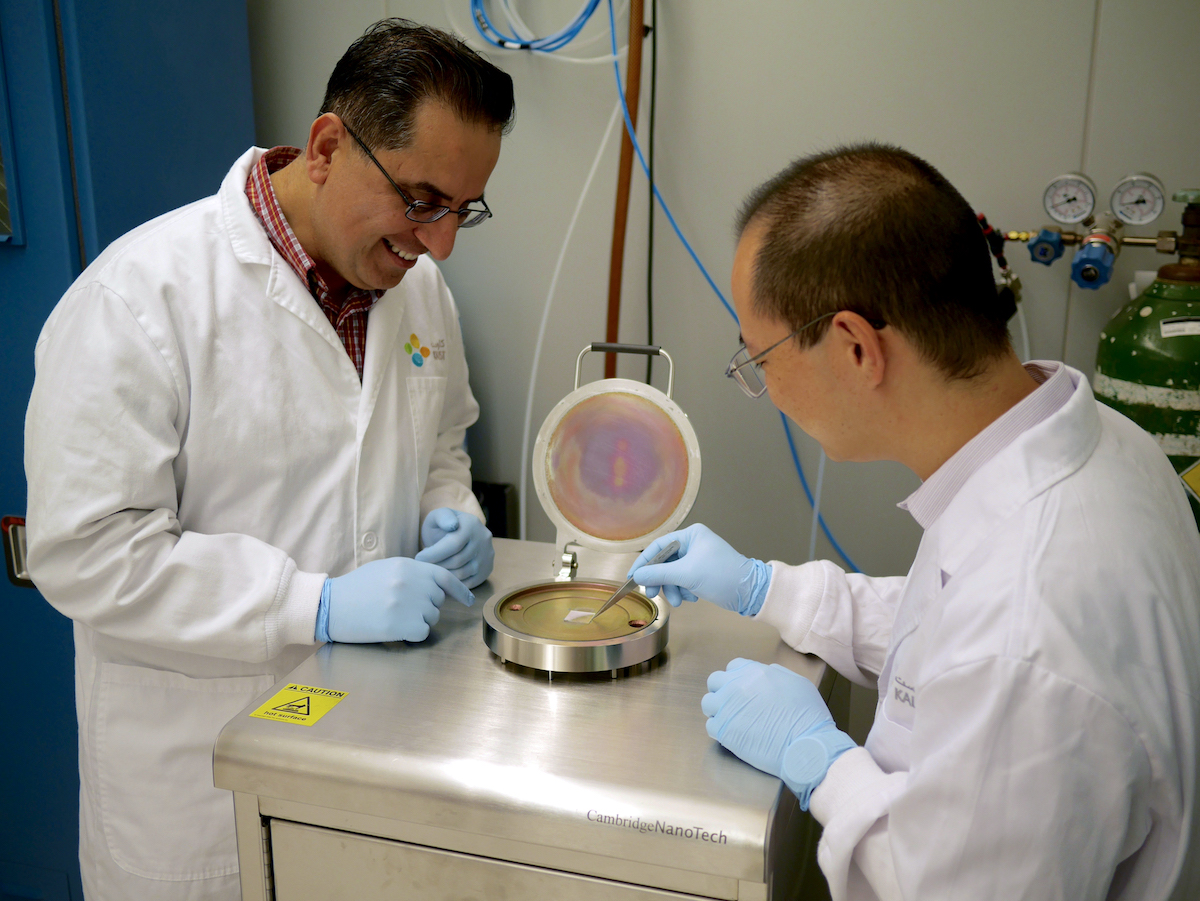KAUST Professor Husam Alshareef becomes Fellow of American Physical Society

KAUST Professor of Material Science and Engineering Husam Alshareef recently became a Fellow of the American Physical Society. Photo by Nicholas Demille.
Husam Alshareef, KAUST professor of material science and engineering, was recently elected a Fellow of the American Physical Society (APS).
APS promotes and advances physics through a variety of research journals, international education, outreach and advocacy and scientific meetings. The society has over 55,000 members worldwide, and each year, a maximum of one half of one percent of its non-student members become Fellows through a rigorous nomination, review and election process.
Fellowship honors APS members who have made significant and high-level contributions to physics through research and publications; the use of physics in broader science and technology; teaching physics; or service to APS. According to the society, becoming a Fellow “is a distinct honor signifying recognition by one’s professional peers.”
Alshareef was elected based on his “contributions to the development of semiconductor materials and processes for electronics and energy applications, including deployment in volume production,” APS stated.
“I’ve been working for nearly 25 years on developing semiconductor materials for electronics and energy applications,” Alshareef said. “By manipulating the material composition, structure and properties at the nanoscale, we have been able to make better devices that can be used in electronics and energy storage applications.”

KAUST Professor Husam Alshareef (left) works in his Functional Nanomaterials & Devices research group's lab with former student Zhenwei Wang (Ph.D. '18). The group focuses on developing semiconductor nanomaterials for different and wide-ranging applications. File photo.
“In the semiconductor industry, several of my processes were adopted in volume production and used in making electronic chips at Texas Instruments,” he continued. “At KAUST, we have also developed materials for electrochemical energy storage. We have achieved a lot in these areas and broken through several performance barriers. Both of these efforts were cited by APS.” Alshareef has been a member of APS for several years, and noted he feels “proud to become a Fellow, especially as a KAUST professor.”
“Last year I became a Fellow of the Royal Society of Chemistry and this year a Fellow of APS, mostly based on work done at KAUST. I am proud of these achievements because they reflect not only on my personal success but also on the success of KAUST,” he said. “Accolades like these are a testament that our institution is having global impact and is recognized by our peers around the world.”
“Staying engaged with societies like APS is also beneficial on many fronts,” Alshareef added. “This can foster new collaborations; help in recruiting good students and postdoctoral fellows and in getting new ideas; and globally promote the University.”
Related stories:
“Last year I became a Fellow of the Royal Society of Chemistry and this year a Fellow of APS, mostly based on work done at KAUST. I am proud of these achievements because they reflect not only on my personal success but also on the success of KAUST,” he said. “Accolades like these are a testament that our institution is having global impact and is recognized by our peers around the world.”
“Staying engaged with societies like APS is also beneficial on many fronts,” Alshareef added. “This can foster new collaborations; help in recruiting good students and postdoctoral fellows and in getting new ideas; and globally promote the University.”
Related stories:
- KAUST Professor Husam Alshareef wins Kuwait Prize
- See-through circuitry
- Armbands do a health check while you work out
- Water-treated semiconductors up transistor speed
- Single-electrode material streamlines functions into a tiny chip

